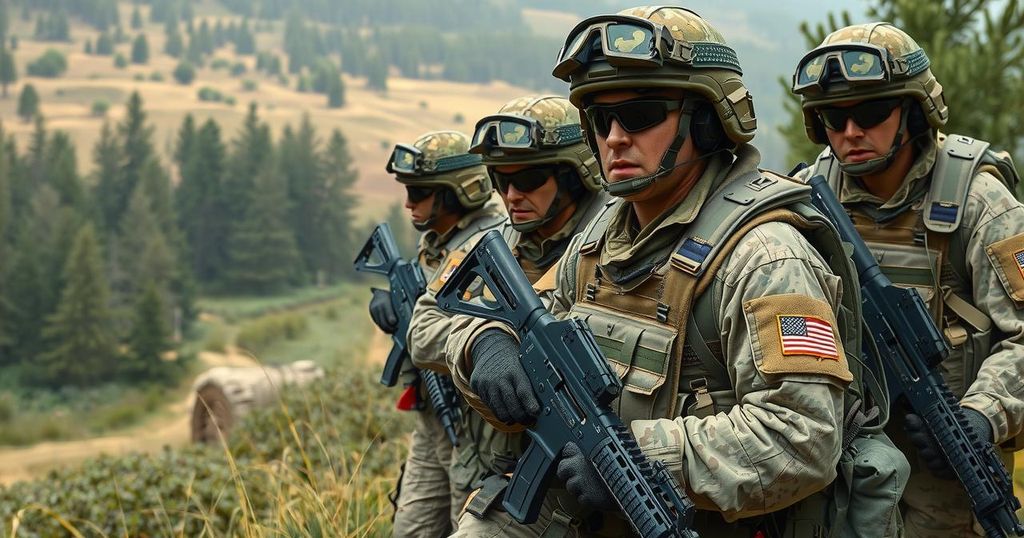Uganda has deployed special forces to South Sudan to protect the fragile government of President Salva Kiir as fears of civil war rise. This intervention highlights the ongoing political rivalry with his deputy, Riek Machar, and underscores the instability in South Sudan since its independence in 2011. The U.S. and U.N. express concerns over escalating tensions, urging both leaders to adhere to the peace agreement.
Uganda has deployed an unspecified number of special forces to South Sudan to protect President Salva Kiir’s government amidst escalating tensions and fears of impending civil war. Major General Felix Kulayigye stated that the troops were sent to Juba to support South Sudan against potential rebel advances, clarifying, “We are not there for peacekeeping.”
This military action by Ugandan President Yoweri Museveni reaffirms his role as a guarantor of South Sudan’s peace process, aiming to stabilize the fragile government of national unity between Kiir and his deputy, Riek Machar. Museveni has historically intervened to maintain Kiir in power during political crises.
South Sudan has faced persistent violence and instability since its independence in 2011, and the recent tensions have been heightened by clashes between government forces and the rebel group known as the White Army. The U.S. has ordered nonemergency government personnel to evacuate Juba, amid warnings from the U.N. about a potential regression in peace efforts.
The situation escalated when a general was killed following attacks on a U.N. helicopter during an evacuation mission in Upper Nile state. Additionally, government troops have encircled Machar’s residence, and a key general loyal to him was detained during these unrests. Kiir’s dismissal of officials connected to Machar has further strained their political relationship.
Kiir addressed the crisis following the helicopter incident, promising that his government “will handle this crisis and we will remain steadfast in the path of peace.” Tensions between Kiir, of the Dinka ethnic group, and Machar, of the Nuer group, have their roots in a prior civil war, which resulted in significant loss of life and marked divisions along ethnic lines.
While a peace agreement was signed in 2018 allowing Machar to return as vice president, ongoing rivalry between the leaders, with accusations of dictatorship and ambition for power, severely hampers progress towards stability. With elections postponed until 2026, both leaders face international pressure to implement reforms and move forward with the peace deal.
The unification of the army command remains unaddressed, showcasing the fragility of the current political situation. Overall, the deployment of Ugandan forces highlights the precariousness of peace and governance in South Sudan, as internal conflicts threaten to reignite broader warfare.
The deployment of Ugandan special forces to South Sudan marks a critical intervention to support the beleaguered government of President Salva Kiir amid escalating tensions with his deputy, Riek Machar. Historical grievances and recent conflicts underscore the fragility of the peace process. Both leaders are pressured to honor the 2018 peace agreement and prevent a return to civil war as political rivalries continue to threaten stability and peace efforts. The situation remains precarious as external military support is juxtaposed with internal strife.
Original Source: www.newsday.com






